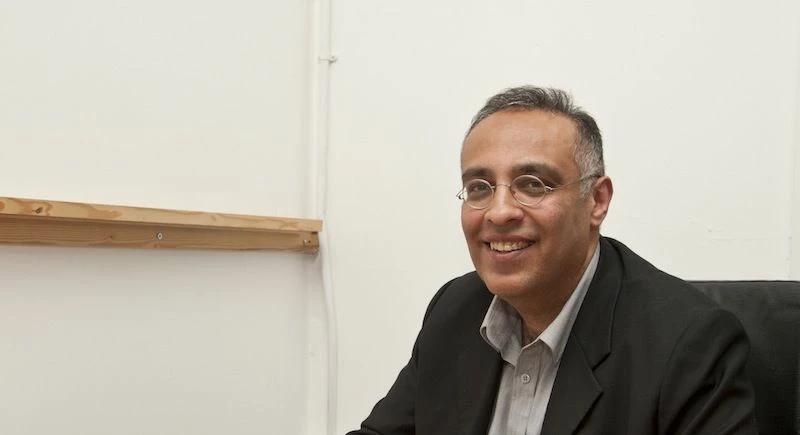
Businessman brings alternative radio wave therapy to the North East
A treatment used to tackle the symptoms of a wide range of conditions including autism, dementia and Parkinson’s Disease in Europe and the US has arrived in the North East.
Newcastle-based Neurowave uses mild radio waves to read the brain via sensors attached to the ears and certain points around the head. The waves can then ‘nudge’ the brain to lessen the symptoms over a number of sessions.
The therapy is called neurofeedback and although it is being used more and more in the US and especially Germany, it is a relatively new arrival in the UK and unique on Tyneside.
Neurowave’s founder Ash Nehmet came across the treatment while researching therapies for his son, who suffers from suspected Attention Deficit Disorder (ADD), and has since used it to transform the quality of life for his father, who has Parkinson’s Disease.
Mr Nehmet said: “It can be used to treat basically any condition relating to the nervous system or originating in the brain from autism and dementia to cerebral palsy. Dementia symptoms can be relieved for up to five years, if caught early enough.
“It is not something you have to have all the time or will always need. After so many sessions, you can then just attend for top ups.
“A big success has been with the treatment of my father. He has Parkinson’s Disease which was medically stabilised with drugs but dad wasn’t the same person. He couldn’t walk properly and was shuffling, his balance wasn’t so good and he was afraid to drive.
“He is now more or less back to normal. He can twist his neck, drive and his walking is better. He is so improved that people who know him are asking him how he has done it and what treatment he is having. After each session, he tells us something else has improved, which is great to hear.”
Mr Nehmet, a businessman with a scientific background, decided to start Neurowave after thoroughly researching the system and discussing it with his wife, who is an occupational therapist with 25 years experience working in mental health with the NHS.
He said: “I was sceptical at first but what particularly attracted me to neurofeedback was that it has a scientific basis.
“It has had numerous entries in many scientific journals, for the treatment (or symptom reduction) of a breadth of illnesses which are conventionally difficult to treat.
“Also it is widespread in Germany and to a lesser extent, the USA. German healthcare is considered innovative, especially with regards to using an ‘unconventional’ treatment where it may be appropriate, rather than dogmatically sticking within a narrow focus.”
Neurowave was initially set up to treat family and friends. In addition to Mr Nehmet’s father, a family friend’s depression symptoms have radically reduced, and the current clients include a young autistic boy and a stroke victim.
The therapy has also been used to successfully treat horses with head injuries and abused dogs with behavioural problems. In addition, it has been used as a method of rehabilitating prisoners, an area that particularly interests Mr Nehmet.
He added: “I believe this is a big potential use, because it could reduce crime AND save millions in incarceration costs, police costs, and whole justice system costs. Once we are established, I will look to increase my knowledge about this specific area and then try and put it to good use.”
Mr Nehmet is now looking for commercial premises for the business, which until now has been home-based. He is also keen to introduce other alternative therapies, such as Heartmath, a US heart-rate-variability system, which in its simple form can be described as a breathing technique.
It helps with relaxation, stress control, anxiety and focus. Both HeartMath and neurofeedback have been successfully used to boost performance among professional sportsmen and women in Europe and the US, helping their timing and decision making.
Mr Nehmet added: “I think neurofeedback is going to become big in the next three to 10 years.
“It has the potential to save money on the cost of dementia and Parkinson’s patient care, as well as benefiting the person.”
Looking to promote your product/service to SME businesses in your region? Find out how Bdaily can help →
Enjoy the read? Get Bdaily delivered.
Sign up to receive our daily bulletin, sent to your inbox, for free.








 Navigating the messy middle of business growth
Navigating the messy middle of business growth
 We must make it easier to hire young people
We must make it easier to hire young people
 Why community-based care is key to NHS' future
Why community-based care is key to NHS' future
 Culture, confidence and creativity in the North East
Culture, confidence and creativity in the North East
 Putting in the groundwork to boost skills
Putting in the groundwork to boost skills
 £100,000 milestone drives forward STEM work
£100,000 milestone drives forward STEM work
 Restoring confidence for the economic road ahead
Restoring confidence for the economic road ahead
 Ready to scale? Buy-and-build offers opportunity
Ready to scale? Buy-and-build offers opportunity
 When will our regional economy grow?
When will our regional economy grow?
 Creating a thriving North East construction sector
Creating a thriving North East construction sector
 Why investors are still backing the North East
Why investors are still backing the North East
 Time to stop risking Britain’s family businesses
Time to stop risking Britain’s family businesses